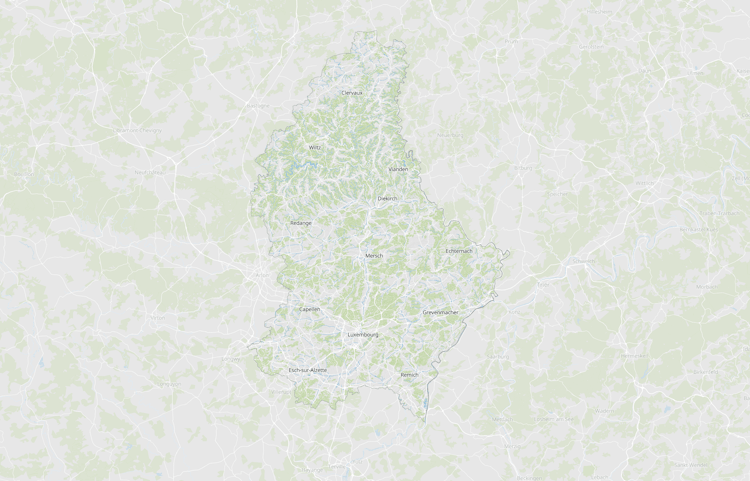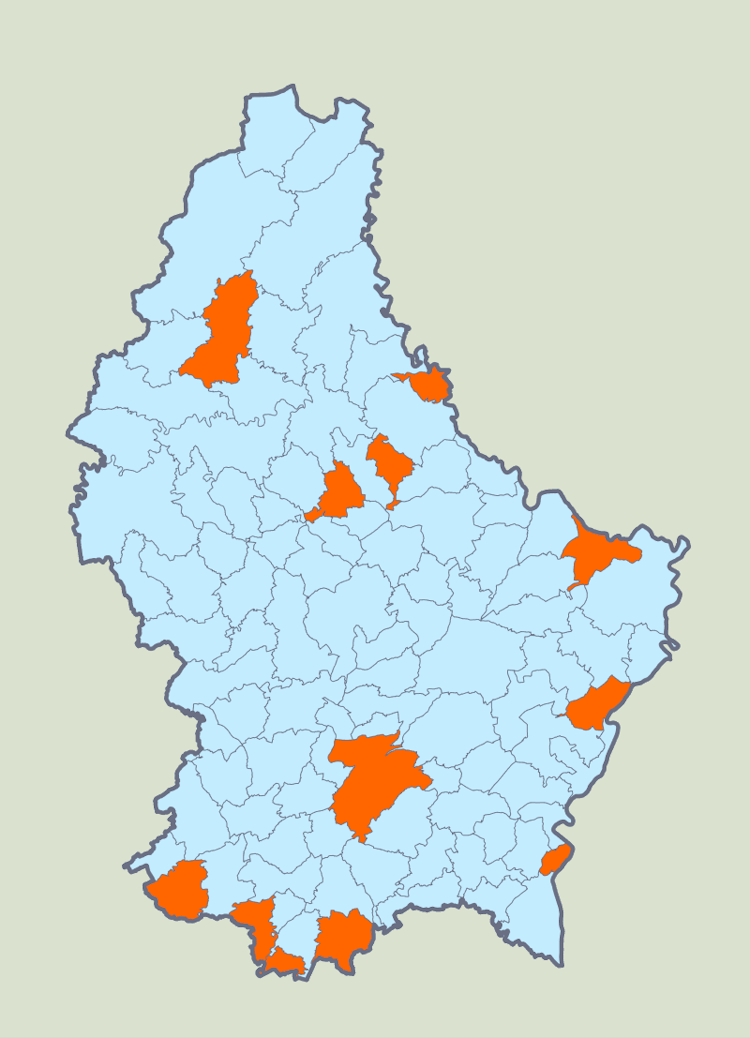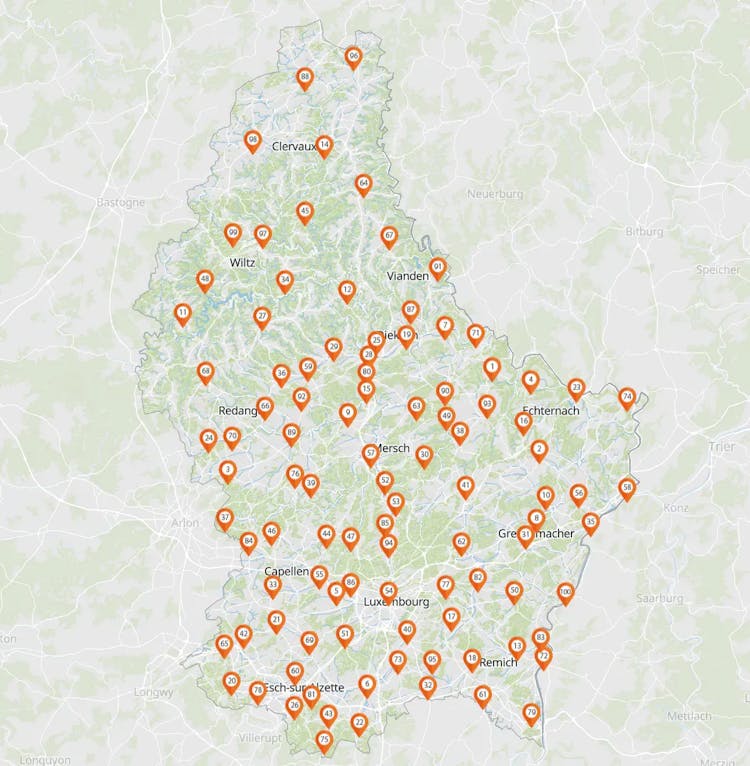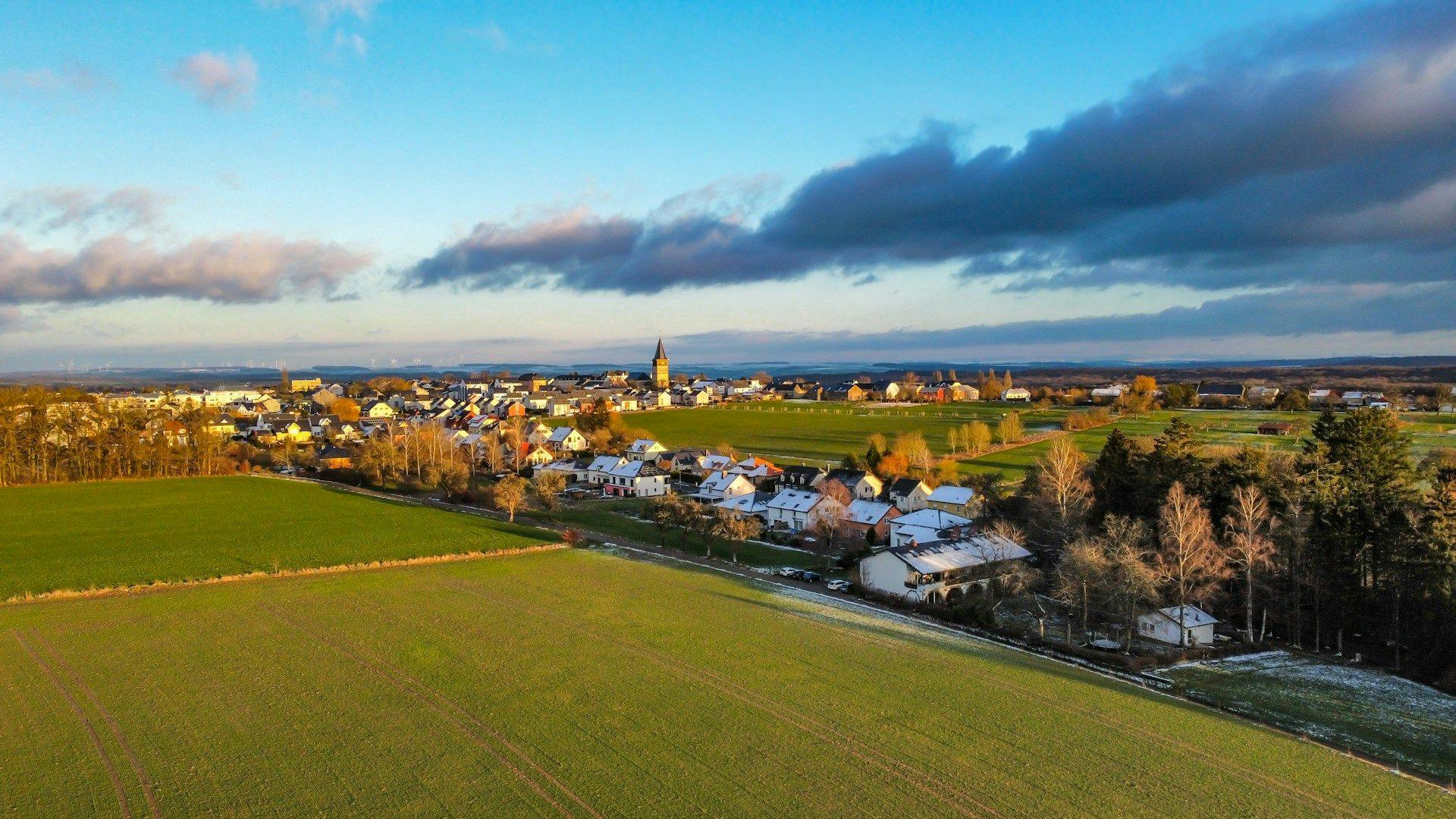
How to buy a real estate in Luxembourg
In this guide, we'll look at the most important aspects of buying a home in Luxembourg, from legal aspects to market trends. Find out how to legally become a property owner in the Grand Duchy
For a citizen and a non-citizen, the process of buying an apartment or a house in Luxembourg is the same.
The real estate market in Luxembourg has its own characteristics, so it is logical to first choose a suitable location and research prices.
Before analyzing some specifics (for example, the presence of railroads or an airport near the house) and choosing a particular place, it is worth understanding what Luxembourg as a whole is as a place of permanent residence. The country has been divided into cantons, which are subdivided into municipalities. In addition, the cantons are divided into two large regions, each with its own peculiarities.
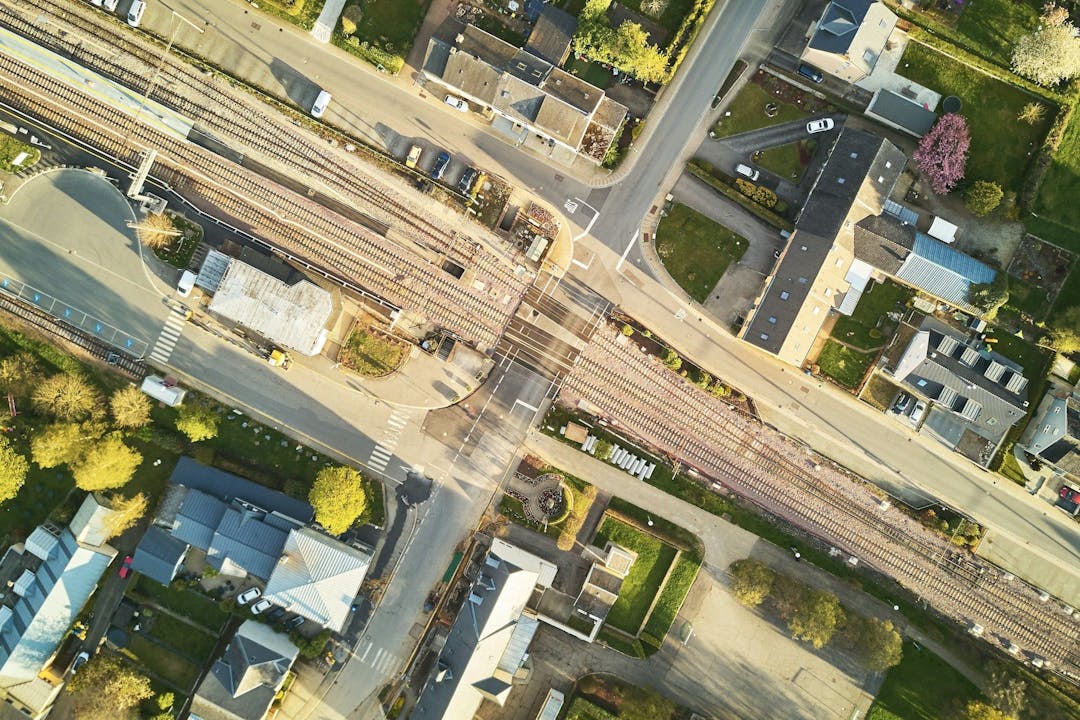
Let's learn a little about how to choose a future place to live and what to strive for.
Cantons
Communes
Major regions
When choosing a house or apartment to buy, it is worth considering this administrative division, as property prices vary according to the municipality in which the dwelling is located.
- The northern part, the Oesling, has traditionally been slightly less expensive than the southern Guttland.
- The most expensive place to live was and is the municipality of Luxembourg, the capital of the Grand Duchy, as well as the canton of the same name, which includes 11 municipalities: Luxembourg, Hesperange, Bertrange, Contern, Niederanven, Sandweiler, Schuttrange, Steinsel, Strassen, Walferdange and Weiler-la-Tour. Learn more about each of them in a separate article.
Finally, you need to look at several agencies and sales services to understand the approximate prices of housing in Luxembourg.
When choosing a land plot, also pay attention to the register of contaminated land. It is used by notaries when conducting transactions. Notaries are not obliged to inform their clients about the presence of contamination, but often do so on their own initiative.
Buying real estate in the Grand Duchy is both a big investment and a profitable one. Housing in Luxembourg is becoming increasingly expensive: demand is high but supply is low.
Average price per m² in the Grand Duchy
The most recent data on real estate prices in the Grand Duchy provides Observatoire de l'habitat, suggesting to focus on the range of 5028 — 12 569 euro/m². In some communes, the cost is significantly higher, in some — significantly lower.
| Commune | Average price | Price range |
| Luxembourg | 10 785 | 7517 – 14 345 |
| Hesperange | 9082 | 5891 – 11 900 |
| Sandveiler | 8724 | 5937 – 10 740 |
| Walferdange | 8762 | 6689 – 11 118 |
| Strassen | 10 841 | 7829 – 13 959 |
| Bertrange | 10 676 | 6530 – 14 621 |
| Contern | 8840 | 6657 – 11 602 |
The price per square meter depends on the neighborhood, the location in relation to the main infrastructure — roads, schools, parks, etc.
The further away from Luxembourg, the lower the price per square meter. For example, 7260 euro/m² in Esch-sur-Alzette or 8016 euro/m² in Grevenmacher.
To see the price ranges and average cost per square meter in other municipalities, check out the Luxembourg Housing Observatory report or visit their website directly Observatoire de l'habitat.
Average prices per m² in the capital
Directly in Luxembourg, the price per square meter is higher than in all other cities and communes. According to the latest data from Immotop.lu, the average price per square meter in the capital was €12,487.
In some neighborhoods in Luxembourg this figure is much higher, in particular in Belair the average cost per square meter is 14,571 euros and in Kirchberg 13,014 euros per square meter. At the same time, Beggen, Dommeldange and Rollingergrund were the cheapest districts in Luxembourg.
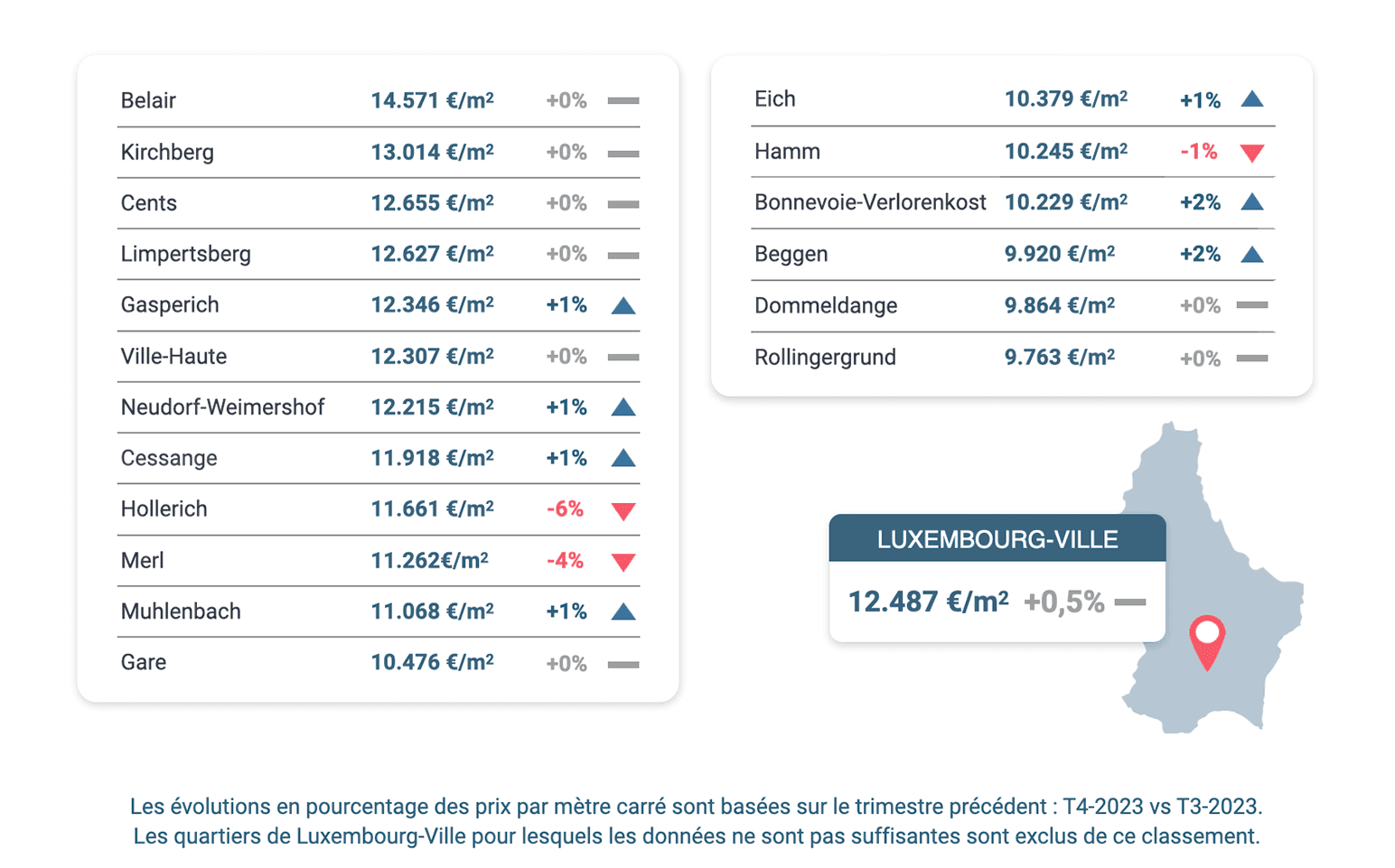
If you want to know more about the neighborhoods and the structure of the capital of the Grand Duchy, study the information about the districts of Luxembourg in the apartment rental guide or read the hotel material about each of them in the specialized section of our website.
Average prices for apartments and houses
As far as the budget is concerned, that is to say, what is the price of a finished apartment or house in Luxembourg, it is necessary to take into account the territorial principle (which commune) and the number of rooms (studio, 1 room, 2 rooms, etc.).
As for the capital itself, in Luxembourg you can pay from 700,000 euros for a studio apartment in popular neighborhoods (Kirchberg, for example). And the prices of luxury houses can even reach 5-7 million euros and more.
Buying real estate in Luxembourg has its own subtleties. The buyer can only buy the property itself. And the land on which the property is built. You can buy a property with land. It is more expensive, but then you own both the property and the land.
If you don't have the full amount to buy a home, with a legal income in Luxembourg, you can take out a mortgage at around 5%.
Read article
In addition to spending on the property itself, the buyer will need a lot of money for related expenses.
Bank Insurance
Property purchase tax
VAT
Notary fees
Obligation to the public notary
Property Tax
Property Insurance
When buying a home, unlike when renting, the buyer does not have to pay an estate agent — it is the seller's responsibility. However, it is necessary to take into account the peculiarities of the Luxembourg market, with high demand and low supply.
Buyers are hiring real estate agents and using their own specialists to find them the right property when it comes on the market, and sometimes even before.
The agent will not only help you find a suitable property, but will also check the cleanliness of the property, organize viewings and conduct negotiations on your behalf. However, you should only work with licensed professionals who are familiar with the Luxembourg real estate market.
All agents operating legally in Luxembourg have an operating license.
On your own or with the help of your real estate agent, find a home that meets your requirements. Make an appointment with the owner to view the property in person and assess its condition, location and suitability.
These are just the basic points to consider. However, each object should be considered individually, taking into account the specifics of housing: a new house or repeated sale, apartment or low-rise development, availability of parking, whether the negotiation is possible, etc. With these nuances usually helps to understand the real estate agent.
Once you have found a property that meets all your requirements, you need to make an offer to the seller. If you have an agent, all you have to do is let them know that you are satisfied with the property. The agent will then contact the owner, represent your interests and take on the role of negotiator.
Once the seller accepts the offer, the notary must be contacted.
Notaries carry out all real estate transactions in Luxembourg, ensuring their full legality and protecting sellers and buyers from fraud.
In Luxembourg, there is a public notary's office at 53, boulevard Joseph II, L-1840 Luxembourg.
You can go there in person, but it is better to call and order the services of a notary at (+352) 44 70 21. You can also find a notary directly on the website of the Chamber of Notaries.
A real estate agent or seller can also help you choose a notary.
Important details




In order to purchase a property, the buyer must provide a basic set of documents.
After signing the preliminary contract, the notary prepares the package of documents required for the transaction. In order to purchase a property, the buyer must provide a basic set of documents.


At this stage, the transaction is "slowed down" for a month and a half or two months. During this time, the notary carefully examines the documents submitted by both parties: the buyer and the seller.
Due diligence examines a property's legal status, land use and development conditions, and identifies potential problems.
Not only the buyer but also the seller may have questions during the inspection.
If the seller has done illegal renovations, due diligence will uncover this. Or if the seller has yet to disclose that the property has a dark past. Or did not disclose that the house cannot be sold at the moment because it is at the center of a legal dispute about inheritance, etc.
If the inspection is successful, the notary will draw up a sales contract based on the preliminary agreement (compromis de vente).
Review and sign the deed in the presence of a notary.
The contract, as well as the preliminary agreement, must contain:
- Personal data of both parties to the transaction: the seller and the buyer,
- Data of the property to be sold (cadastral certificate, passport, etc.),
- Sale price and terms of payment,
- Name of the notary who certified the transaction,
- Date of signing and/or date of intended possession, i.e. date of handing over the keys to the new owner. It is also worth considering a compensation clause in case the keys are not handed over on the scheduled date.
These are the minimum requirements that should be included in the contract.
Usually, the signing of the contract goes hand in hand with the payment. However, you can pay for the apartment after signing the contract. But you should not delay.
Every purchase and sale of real estate is registered by the state notary. And after the registration, the buyer has 15 days to transfer the money to the seller. If the new owner misses this deadline, he will have serious problems.
Once the buyer has paid for the house and received the deed of sale, he is the full owner of the house in Luxembourg.
Do not forget to transfer the payment of the utilities into your name.
Frequently Asked Questions (FAQ)
How much does it cost to buy a house in Luxembourg?
Who can own property in Luxembourg?
Is there a tax on real estate in Luxembourg?
Source: guichet.public.lu, logement.public.lu, www.immotop.lu, guichet.public.lu, www.notariat.lu
We took photos from these sources: Cedric Letsch для Unsplash, Wikimedia, Johny Goerend для Unsplash, Immotop.lu
